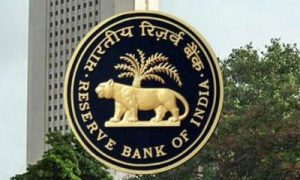I am planning to travel abroad. Can you tell me what are charges of swiping a card abroad, especially after new 20 per cent TCS rule?
Nitin, Noida
Reply by Rohit Chhibbar, Head of Credit Cards, Paisabazaar
As compared to credit cards and debit cards, forex cards are more cost-effective as they are tailor-made to finance international expenses. Both credit and debit cards carry a high foreign exchange mark-up fee also known as currency conversion fee, which can range from 1.5 per cent to 3.5 per cent of the transaction amount. However, forex cards do not carry a forex mark-up fee as long as you make the payment in the pre-loaded currency.
Read More: Gold Rates 22 Carat Rise In India; Check Latest Price In Your City On June 1
Apart from swiping the cards at merchant terminals, you can also use any of the available card options- credit, debit or forex- to withdraw cash from an international ATM. While swiping your credit card or debit card at a merchant outlet does not attract any charges other than the forex mark-up fee, cash withdrawals from international ATMs also incur cash withdrawal charges. It varies from one issuer to another and, in case of forex cards, it may vary from currency to currency. Cash withdrawal charges are usually applied as a definite amount instead of a percentage.
To help consumers get a perspective on these two main charges, here is a comparative table:

Note: The rates mentioned above are indicative and may vary across issuers and card types.
Read More: TCS Work From Office Policy: IT Firm Warns of Paycut, Leave Deduction For Employees
Credit cards are the most expensive option when it comes to cash withdrawals. You would not only have to pay the foreign exchange mark-up fee but two additional charges- cash advance fee and finance charges. Moreover, credit card cash withdrawals are not eligible for the interest-free period, which is why you would immediately start incurring finance charges on the withdrawn amount. All these charges together make international credit card cash withdrawals a very costly affair.
Moreover, recent amendments in the Foreign Exchange Management Act (FEMA) have brought international transactions made via credit cards, debit and forex cards under the Liberalised Remittance Scheme (LRS). From 1st July 2023, these transactions will also start attract 20 per cent TCS, making credit cards even costlier for foreign transactions.
Read More: HDFC Bank offers higher rates through new 35-month, 15-month deposits
Although, as compared to credit cards, debit cards are cheaper for international cash withdrawals, they also carry high foreign exchange mark-up fees. Moreover, debit cards suffer from the volatility in exchange rates and, as a result, there would be uncertainty as to how much funds you have at hand at the time of making a transaction.
Forex cards are pre-loaded with the destination currency and the exchange rates are locked-in so you are safe from the exchange rate volatility as well as additional charges applied for such currency conversion, making it the most efficient option of all.





































